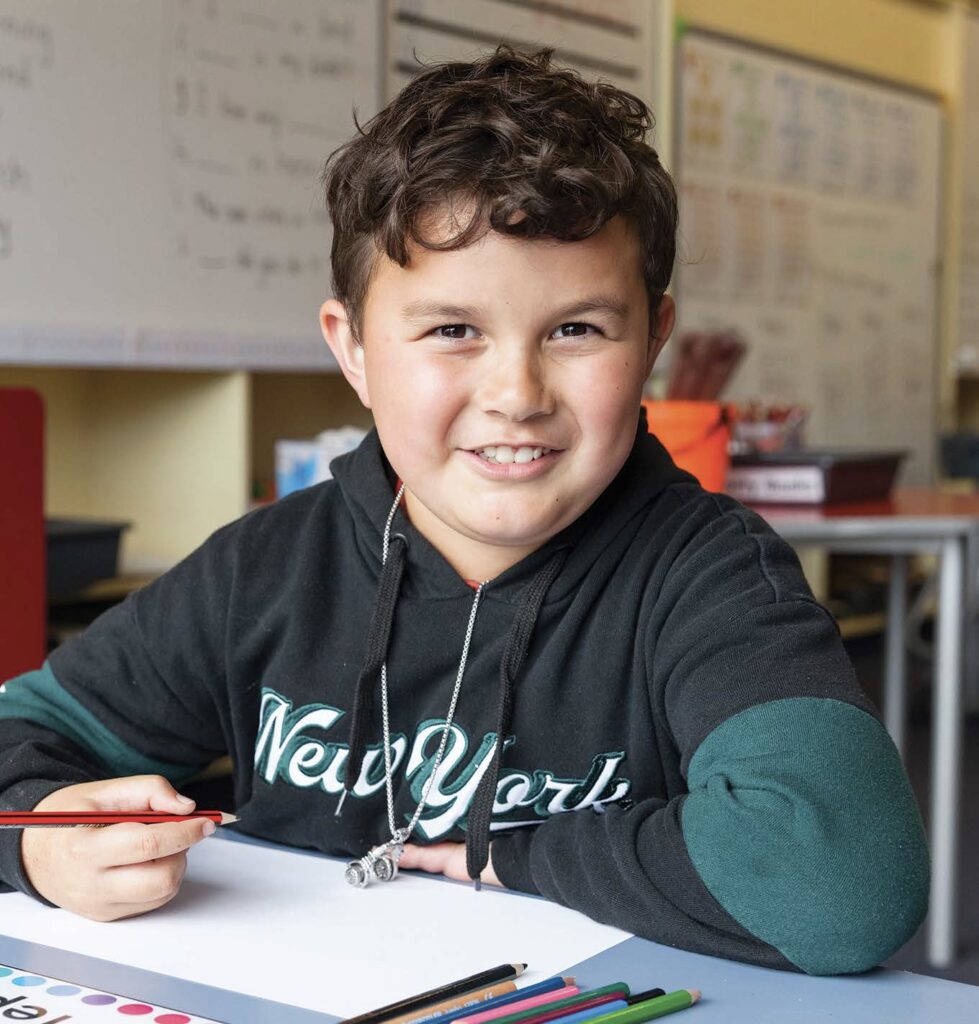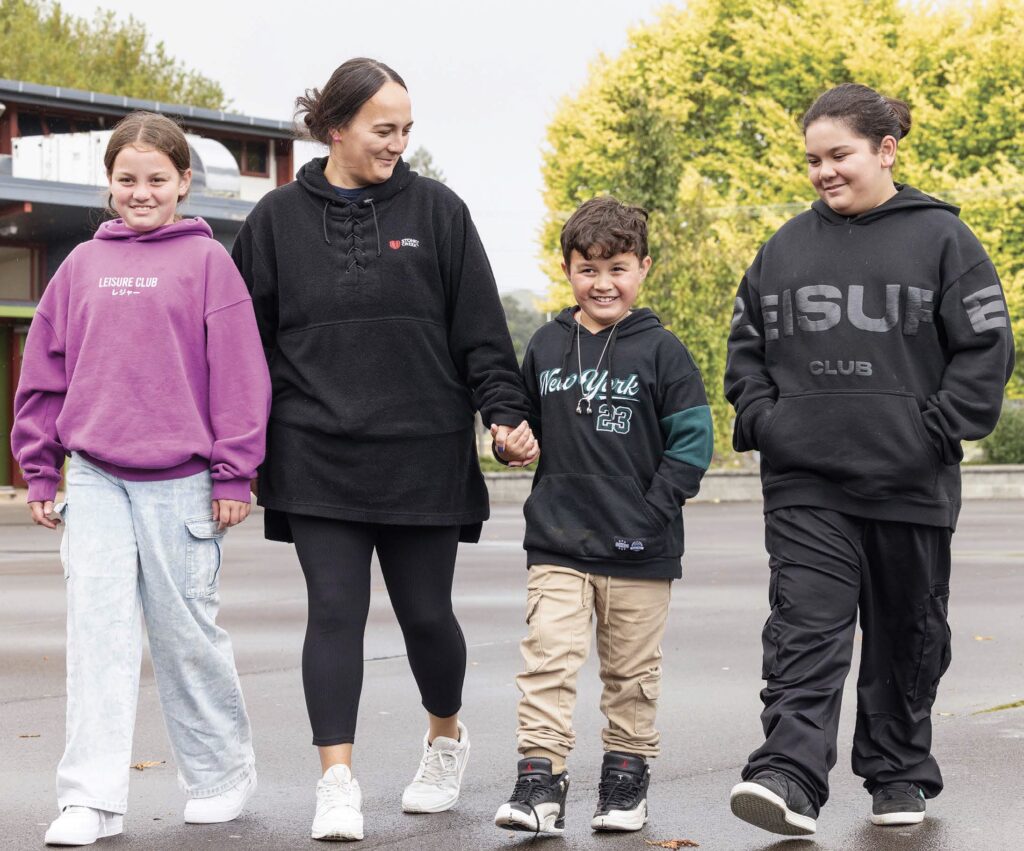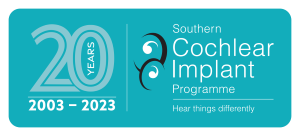Te Peehi-Tukotuku Cashell-Hansen’s young life is centred on his whānau. “He’s very self-driven and family orientated – family is definitely the most important thing in his life,” Te Peehi’s mother Courtney Cashell says. They live in Taihape in the central North Island and seven-year-old Te Peehi has two siblings – brother Kohatu-Paul (12) and sister Noelle-Arorangi (10).

Te Peehi is the only child with cochlear implants in Taihape. In fact, he hasn’t met any other children with “super ears,” as he calls them. “He’s a very inquisitive boy. He loves tennis, swimming, Te Ao Māori and ocean animals,” Courtney says. On an outing one day he was intrigued when he saw an older man with a cochlear implant, just like him.
“Te Peehi loves his cochlear implants – he only takes them off if we need a battery change or he is asleep,” his mum says. No-one in Te Peehi’s family had previously been born with a hearing difference, so when her son’s newborn hearing screening identified a need for further investigation it was a surprise for Courtney. Initially she felt raw, but in hindsight Courtney looks back on his first years as being part of their journey. Grommets for fluid behind Te Peehi’s eardrums were first suggested, then he had ear impressions made for hearing aids for both ears. When he was one, Courtney was first told about cochlear implants. She’d not come across the technology before. “I was taken aback but I heard good stories. We looked at the pros and cons of the surgery and I put the decision on the backburner at that time.”
Te Peehi tried hearing aids and the whānau began learning New Zealand Sign Language (NZSL) with the help of their advocate, Candice, from First Signs Aotearoa. Candice would travel fortnightly from Palmerston North to visit. When he was two it became clear hearing aids would not help Te Peehi. Courtney decided to pursue cochlear implants and within six months everything was booked. She recalls learning about how the implants work. “Our minds boggled to think of that kind of technology. It’s out of the gate.”
After his surgery, Te Peehi’s communication skills slowly progressed to the same level as his peers. “Now when I look back it was the best decision I ever made for my child,” Courtney says. “Wow – just seeing the progress Te Peehi made with his education and all language aspects! He can learn with his peers and comprehend as he hears anything and everything. It means he can be him and be accepted for who he is.” On occasion Courtney has to whisper when she doesn’t want Te Peehi to hear her conversation!

Noelle-Arorangi, Courtney, Te Peehi-Tukotuku and Kohatu-Paul
She is very grateful to her whānau. “I couldn’t have gotten this far without 150% support from them. They’ve been with us on this journey. Mum even came to Christchurch for the surgery.” Courtney is a teacher aide at Taihape Area School. In the beginning, the job came about when she was approached as the only person who knew NZSL in Taihape. A student who knew American Sign Language started at the school and needed a teacher aide.While the student is no longer there, Courtney has continued as a teacher aide for other children. She has also helped run classes to teach NZSL through the Ruapehu Reap, a business that provides learning opportunities for the community.
Courtney is trilingual – also knowing te reo Māori. Her iwi is Ngāti Whitikaupeka. Te Peehi is now also learning Māori and he travels to participate in Deaf community events in Palmerston North through First Signs Aotearoa. The team at the Southern Cochlear Implant Programme are awesome to work with, Courtney says. “I would love to give them the utmost gratitude for their love and support with everything we have gone through. I am truly grateful for what they have given my child, myself and my whānau.”
